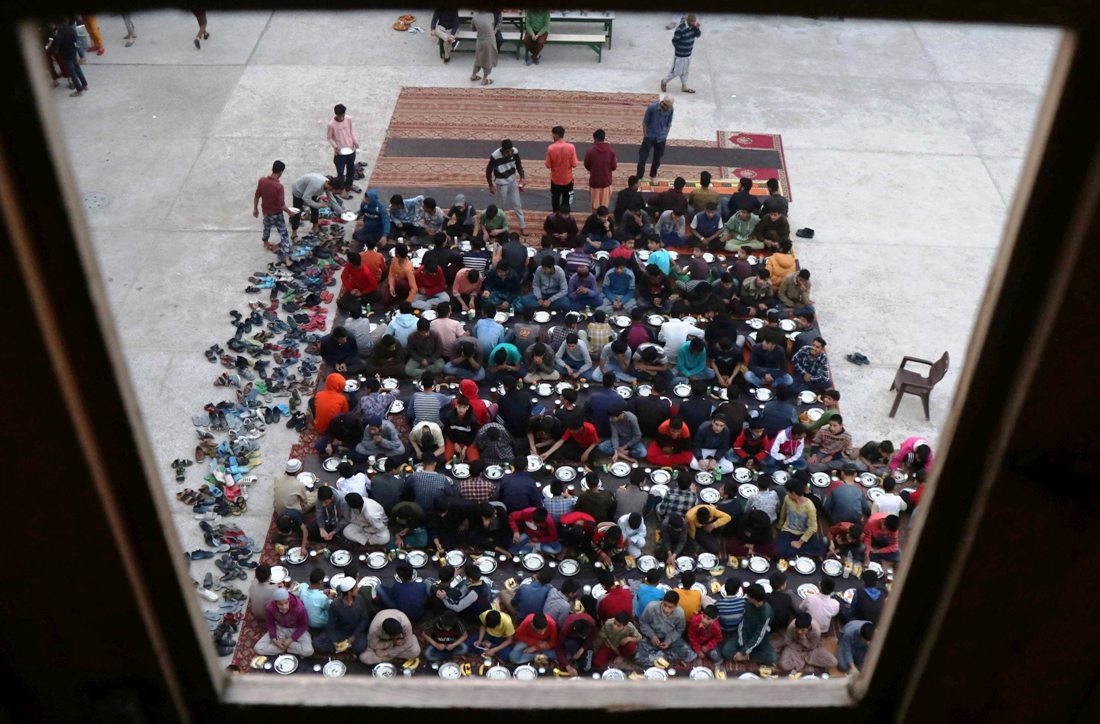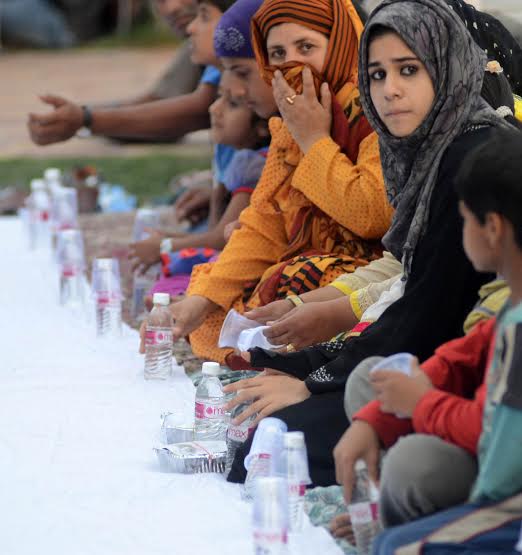by Muhammad Nadeem
In a time witnessing the erosion of liberal values and the rise of alternative perspectives, the significance of Muslims hinges on reclaiming Islam as a counternarrative—a liberating force challenging liberal theology and modern excesses. Ramadan can catalyse this endeavour

Ramadan serves as a time for contemplating the mercy and blessings of Allah, seeking repentance, and earnestly seeking His forgiveness.
The Prophet’s (peace be upon him) teachings redirected our focus from the mundane to the celestial, guiding us from darkness to the radiance of divine light. He urged us to find serenity in the divine.
Subsequently, the Prophet (peace be upon him) instructed observance of Ramadan, advocating fasting during daylight hours and nocturnal prayers. Each day entails patient fasting and each night, grateful prayer.
The Prophet’s (peace be upon him) influence reshaped the once unruly tribes of Arabia into pious devotees, gathering five times daily for prayer in mosques, and forsaking past indulgences for the discipline of Ramadan‘s fasting and prayer.
He cultivated a profound reverence for both Allah and humanity, his life serving as a guiding beacon for his followers. Renowned for his sincerity and approachability, Muhammad exemplified his teachings in daily life.
Emphasising the spiritual over the material and the soul’s supremacy over the body, the Prophet imparted the lesson of spiritual elevation through fasting, prioritising the soul’s ascent over physical indulgence.
Abstaining from food, drink, and sexual activity served as a preliminary step towards a more profound objective: mastering desires such as greed, lust, and anger. The Prophet emphasised inner strength over mere physical prowess, stating, “The strong person does not overpower others, but one who controls themselves in moments of anger” (Saheeh Al-Bukhari)
He also highlighted fasting’s impact on behaviour, advising, “Fasting serves as a shield, so those who fast must refrain from indecent speech and ignorant behaviour. If provoked, they should respond, ‘I am fasting'” (Saheeh Al-Bukhari)

Central to the Prophet’s (peace be upon him) teachings on fasting was cultivating empathy and solidarity. He exemplified unparalleled kindness and generosity, especially during Ramadan. (Saheeh Al-Bukhari)
The Prophet (peace be upon him) emphasised the significance of kindness in interpersonal relations: “Make things easy for people and do not make them difficult, and cheer people up and do not drive them away.” (Saheeh Al-Bukhari)
He (peace be upon him) also prioritised actions that bring happiness to fellow Muslims: “The most beloved of actions to Allah Almighty is making another Muslim happy, relieving their hardships, settling their debts, or alleviating their hunger. I find it more rewarding to assist a Muslim brother in need than to seclude oneself in a mosque for a month…” (Tabarani)
A sincere fast fosters an appreciation for Allah’s abundant blessings, prompting the Prophet (peace be upon him) to caution against overindulgence: “The food for two should suffice for three, and the food for three should suffice for four.” (Saheeh Al-Bukhari)
The Prophet (peace be upon him) urged: “Show mercy to those on earth, and the One in Heaven will show mercy to you.” (Tirmidhi) and “A true believer does not indulge in abundance while their neighbour suffers hunger.” (Bayhaqi)
The Prophet’s (peace be upon him) companions revered him for his extraordinary kindness, extended to humanity and all living beings.
The Prophet’s (peace be upon him) leadership epitomised exceptional consideration and care. He ensured no follower bore burdens beyond their capacity, in accord with divine teachings.
Acknowledging human limitations, the Prophet (peace be upon him) advised Muslims to delay the pre-dawn meal (sahur) until shortly before the dawn Prayer and to promptly break the fast (iftar) after the sunset Prayer, easing the fasting process.
During Ramadan travel, the Prophet allowed companions to choose between fasting or breaking their fast, depending on individual capability. Notably, he didn’t set a specific distance for breaking the fast during travel, leaving it to individual discretion.
In cases of extreme heat or thirst, companions were permitted to refresh themselves by pouring water on their heads, a practice endorsed by the Prophet (peace be upon him).
Regarding interactions with his wives during Ramadan, the Prophet regulated actions that might compromise fasting.
Initially performed collectively, the Tarawih Prayers were discontinued by the Prophet to prevent potential imposition as obligatory. While he advocated congregational prayer, he allowed flexibility out of compassion.
The apex of Ramadan for Muslims lies in the pursuit of Laylat al-Qadr (the Night of Power) during its final ten days. Highlighting this phase, the Prophet advocated i’tikaf, a spiritual retreat entailing seclusion in a mosque for devoted worship and remembrance of Allah.

In an age consumed by transient pleasures, periodic withdrawal to the haven of prayer becomes imperative for spiritual rejuvenation and reconnection with the Creator. The Prophet’s teachings urge us to utilize Ramadan as a period for disciplining our impulses, forsaking self-indulgence, and fostering enduring resilience in adversity. He emphasised our duty, particularly during Ramadan, to assist and uplift those less fortunate among us.
Fasting, practised communally and globally in an era dominated by capitalism and liberal ideology, signifies a collective dissent. In a time witnessing the erosion of liberal values and the rise of alternative perspectives, the significance of Muslims hinges on reclaiming Islam as a counternarrative—a liberating force challenging liberal theology and modern excesses. Ramadan can catalyse this endeavour.















